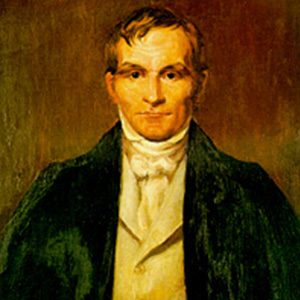Philip Pendleton Barbour (1836-1841) was the Speaker of the House for the Seventeenth Congress before being appointed by Andrew Jackson to serve as an Associate Justice to the United States Supreme Court.
Early Life
Philip Pendleton Barbour was born on March 25th, 1783 near Gordonsville, Virginia. During his undergraduate studies Barbour faced difficult economic circumstances, forcing him to end his studies at the College of William and Mary. As an alternative, Barbour chose to study law with St. George Tucker, a prominent judge and professor of law.
Early Career
After being admitted to the bar in 1800, Barbour practiced law in Kentucky for only two years before moving back to Virginia, where he established his own law office. Thereafter, Barbour started his career in politics, where he served as the state governor and was a member of the Virginia House of Delegates. Then, in 1814, Barbour was elected to serve in the United States House of Representatives, where he proceeded to serve in every term from September 9th, 1814 to March 4th, 1825. During this time, Barbour served as the Speaker of the House for the Seventeenth Congress.
Barbour elected to practice law while he was a member of Congress. While he was a Congressman, Barbour represented the Commonwealth of Virginia in the Cohens v. Virginia case. Consistent with his views that the Constitution limits, rather than expands, the powers of national government, Barbour argued that the Supreme Court lacked jurisdiction to review state supreme court decisions implicating Constitutional rights. The Supreme Court rejected this argument and held that pursuant to the Supremacy Clause, the Court has jurisdiction to review all decisions raising Constitutional questions. After serving in the House for the twentieth and twenty-first Congresses, Barbour was appointed as a judge for the United States District Court for Eastern Virginia.
Supreme Court
Andrew Jackson appointed Barbour to the United States Supreme Court in 1836, where he proceeded to serve as an Associate Justice for four years. However, his short time on the bench did not provide him with sufficient time to leave a lasting impact. City of New York v. Miln is the most notable decision Barbour authored during his time on the bench. In Miln, the Court held that notwithstanding the Commerce Clause, a state may regulate commerce in order to protect the health, safety, and welfare of its citizens. This decision, however, was later overruled by the Court in Edwards v. California.
Death
Barbour died in February of 1841, although it is unknown whether he died on the twenty-fourth or twenty-fifth day of the month. The cause of death was heart disease.









